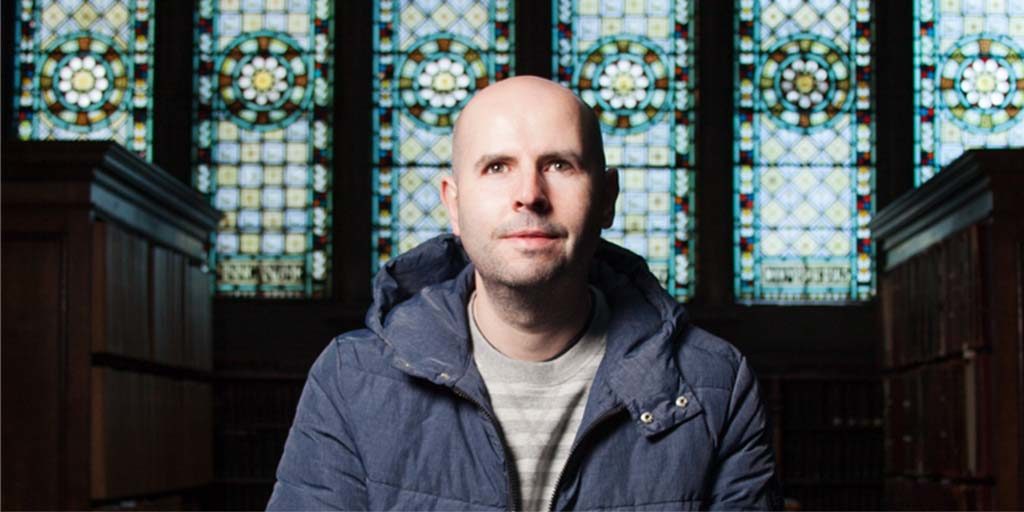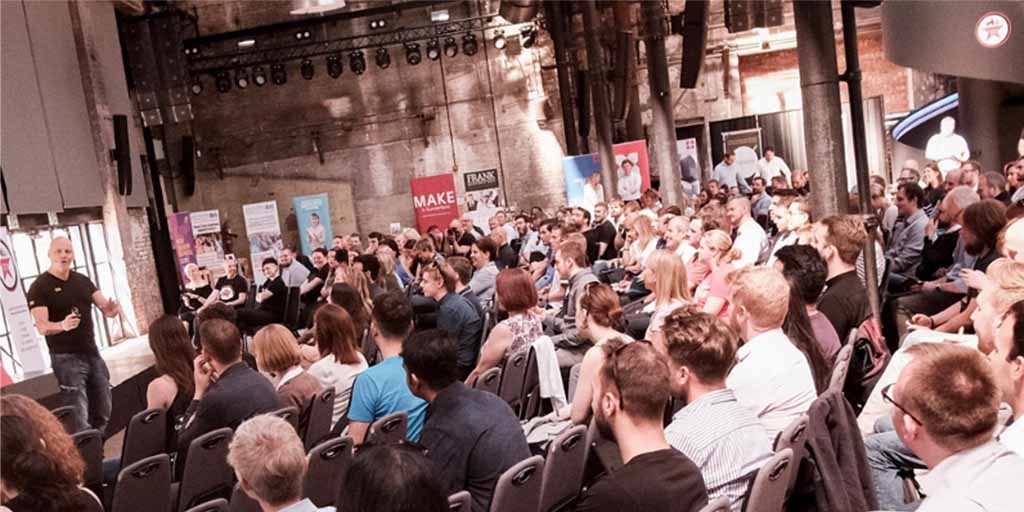Interview - Paul Lancaster
Plan Digital UK
Priscillia Charles, Communications Director, VTQ
VTQ talks to Paul Lancaster, Founder and Producer of the five-day (& night) ‘Newcastle Startup Week’ festival that inspires and helps hundreds of people to start and grow their business.
Can you outline for us the main activities of Plan Digital and the key focus areas?
After helping other people start and grow their business for the past 15 years whilst working for local enterprise agencies, national youth enterprise schemes and Government organizations, I have built up a great business network and a certain amount of influence online which I am now using to help accelerate the growth of digital, tech and creative start-ups in the North East of England. Through Plan Digital, we provide our clients with a unique combination of business development, inbound marketing, and social media consultancy plus events that can raise their profile, provide a platform, and give them direct access to their target audience.
You are the founder and event producer of the five-day ‘Newcastle Startup Week’, which is heading into its 3rd year. Can you tell us about this?
Newcastle upon Tyne and the wider North East of England are such great places to start or grow a business because of its close-knit business community, lots of friendly, free or very low-cost business support services, low-cost of living yet high quality of life, highly skilled and experienced tech/ digital workforce plus five great universities which provide an abundance of new talent. I found that many people wanting to start their own business didn’t know where to go for all the best advice, so I created Newcastle Startup Week as a way to pull everything together in one place and speed up to the process of going from idea to launch and then growth. Each day has a different theme of ‘Inspiration’, ‘Getting Started’, ‘Funding & Finance’, ‘Growing & Scaling’ then ‘Keep Going or Pivot?’. People attending the full week can learn in five days what it would normally take them five months or even five years to learn on their own. Alternatively, they can just dip in and out, or attend only the day that is most relevant to the stage they are at in their business journey. Despite the name, it’s not just start-ups that attend, and anyone who is interested in start-up culture, innovation or wanting to be more entrepreneurial in their business will benefit from attending. Our Newcastle Startup Week festivals in 2017 and 2018 both attracted over 600 delegates. For 2019, we are aiming at between 750 to 1,000 attendees.
Running an event over five days sounds like a large challenge, are you working on this all year-round?
In the first year, I spent nine months working on the event full-time because it was such a big thing to pull together — as far as I’m aware no one has ever done a five-day, multi-venue Startup Week festival in England, let alone Newcastle! However, after the first event was a success, we ran a one-day ‘Newcastle Scaleup Summit’ for just under 200 people six months later, and then another ‘Newcastle Start-up week’ festival six months after that. I think six months is the minimum amount of time we need to do the event well, but we’ve already started pulling Newcastle Startup Week together for the 13th to 17th of May 2019. So, that it gives us around eight months to prepare.
Do people from around the world attend the events?
Yes! Although most delegates are from Newcastle and the North of England, I was delighted to see just how many people had traveled from all over the UK & Ireland this year, and some from Germany, Switzerland, and the USA. My favorite story so far is of an awesome lady called Cindy Moy, who traveled from Minnesota to Newcastle for all five days of Newcastle Startup Week 2017, and found all the help and advice she needed to launch her new self care mobile app and web platform for women http://www.mysysters.com, including her lawyer, accountant, web developer and ongoing business advice thanks to us!
You are a big promoter of start-ups and the North East of England, where does your passion for this come from?
I think there is something in the water or in the air up here! Most people you meet in the North East are hugely proud and passionate about where they are from and when you look at the history of ground-breaking innovation and invention that has come from this part of the world, you cannot fail to be inspired. I genuinely think it is one of the best places to start or grow a business and to raise a family. I am inspired and motivated every day by the inventors and entrepreneurs I am surrounded by through the work that I do.
Where did the idea of Startup Week come from?
I had been thinking for a few years that the North East needed a big event to inspire, motivate and galvanize the business start-up community, but I did not have the time to organize it because I had a day job. Now, this is my day job!
You also have the Scaleup Summit, is this linked to Startup Week or is this different?
Newcastle Scaleup Summit was borne out of our first Newcastle Startup Week in 2017 and is basically an extended version of Day 4 (‘Growing & Scaling’), but over a full day instead of a half day. We noticed that a lot of people attending Day 4 were business owners or managers from established businesses that had hit a plateau or were feeling a little ‘stuck’. Scaleup Summit was, therefore, a chance to go a little deeper into some of the topics that might be holding them back and open their eyes to what they needed to scale their business. Although in terms of content and audience this was a fantastic event, we have decided not to run it again this year, so we can focus all our efforts on organizing the best possible Newcastle Startup Week festival in 2019. Having said that, there is a lot of interest in the scaleup agenda, especially here in the North East of England. We are considering ways we could potentially deliver more Scaleup Summits in partnership with other organizations in towns and cities around the world and are going to run Scaleup Summit again on Day 4 of Startup Week in May 2019.
The Scaleup Summit has a theme to help businesses scale to the next level. How do you achieve this?
From what our speakers said at Newcastle Scaleup Summit last year, it is a combination of putting good systems and processes in place that can help your team become more efficient and effective, hiring talented people who have the right experience, and raising the aspirations or shifting the mindset of the business owner/leadership team to think much, much bigger than they have ever done before.
Many of the world’s largest companies began as start-ups. Many started from a garage or a spare room. What advice do you have for a start-up looking to scale up?
Learn from others who have already done this and make sure it’s what you really want to do. There is a lot of focus and money being spent on initiatives to help more start-ups become scaleups, but people should only pursue this path because they genuinely want to and not because they are being pushed down that route. I know a few businesses that have failed because they tried to grow too quickly without the correct systems and processes or team in place. You should also be aware that the people who were right for starting out might not be the best for scaling up, including the founder /CEO.
We have seen many businesses grow and rapidly move into international businesses. Do you have any advice for companies in this area?
It depends on the type of product or service. One of my favorite businesses is Newcastle-based men’s luxury fashion brand www.alwayswearred.com, which produces handmade hats, scarves, socks, ties, handkerchiefs and more from some of the finest makers in Britain. Classic but with a modern twist, their ‘Made in Britain’ products are the type that could easily be exported all around the world, although it’s unlikely they could or would want to scale too rapidly for fear of losing what makes them who they are. On the flip side, digital/tech products are so easily copied that the biggest and most successful ones have to raise and spend huge sums of money in order to scale rapidly and dominate a market before their competitors can gain a foothold. I guess it all depends on how big you want to be and if you have the appetite for taking such huge risks with your business and other people’s money.
This article first appeared in VTQ Magazine.
Read more: https://vtqglobal.com/




